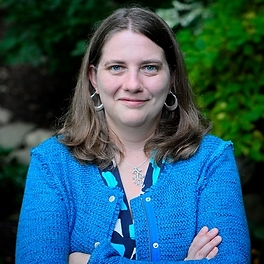Suessmilch Lecture
Can Changing Family Demographics Help Explain the Narrowing Gender Wage Gap?
Alexandra Killewald
Online Presentation, November 15, 2022
As part of the Suessmilch Lecture series, Alexandra Killewald from Harvard University spoke about whether changing family demographics can help to explain the narrowing gender wage gap in the US.
Abstract
We argue that changing family demography can help explain the narrowing gender pay gap in the United States since 1980. To understand this, we introduce the concept of “wedge characteristics” — characteristics differently associated with wages for women compared to men. While prior analyses often spotlight how convergence in men’s and women’s human capital can narrow the gender pay gap, wedge characteristics imply that changes in the family-demographic composition of the labor force can also alter the gender pay gap. Gender pay gaps are larger among the married than the unmarried and among parents than the childless, suggesting that declines in marriage and fertility since 1980 can help explain gender pay convergence. We find that changes 1980-2018 in marriage and fertility alone explain about a quarter of the gender convergence in pay among full-time employees and explain 14 percent net of changes in human capital. We further show that these results are largely driven by compositional change and do not require gender convergence in family-demographic traits. Our results also reveal that the pace of family-demographic change was fastest in the 1980s and subsequently slowed, which, in conjunction with persistent wage wedges, helps explain stalled progress toward gender pay parity.
About the Speaker

© Alexandra (Sasha) Killewald
Alexandra (Sasha) Killewald is Professor of Sociology at Harvard University. She uses quantitative methods to study inequality in the contemporary United States. In one line of research, Killewald investigates the gendered intersection of work and family. In another, she analyzes how wealth inequality persists across generations and the role of intergenerational processes in the racial wealth gap.
Killewald’s research has been published in journals including American Sociological Review, Demography, Social Forces, and Journal of Marriage and Family. She is the recipient of the William Julius Wilson Early Career Award from the ASA Section on Inequality, Poverty, and Mobility and has received article awards from the ASA Section on Family and the ASA Section on Sociology of Population.
Killewald received her PhD in Public Policy and Sociology from the University of Michigan in 2011. Prior to her appointment at Harvard, she was a researcher at Mathematica.